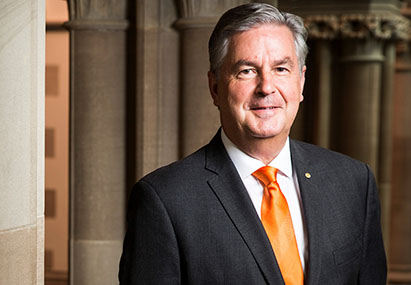South Australia – a Nuclear State in a Global Solution
 |
Keynote:
|
Allan Scott Auditorium, Hawke building, UniSA City West campus
Watch the YouTube video HERE
The international community has accepted the science on climate change and is committed to long term goals requiring significant action to reduce carbon emissions. Australia’s electricity sector is one of the most carbon intensive in the world. There is much to be done to reduce its reliance on fossil fuels. Australia need to think about these issues now.
To meet its share, Australia will need to invest in transforming its national electricity system, retiring aging coal plants and adapting to a greater degree of decentralisation generation supported by energy storage. Investments in a future system need to be driven by stable and comprehensive policy incorporating Australia’s climate change goals and offering a vision for a reliable, low carbon and lowest possible cost electricity system. Diversity of energy generation technologies – and not just wind and solar PV - will be critical. Nuclear power is a proven, low carbon energy source, which is contributing to low emissions electricity in other parts of the world. It may have a role to play in Australia. Our future energy policy should be flexible to allow for that.
Internationally, predictions of nuclear’s demise in a carbon constrained world seem implausible. South Australia is uniquely placed to contribute to a world seeking energy from nuclear sources because of its abundant uranium resources, and the particular combination of geological, political and technical factors required to safely undertake permanent used fuel disposal. The benefits from being a Nuclear State would be game changing.
Rear Admiral the Honourable Kevin Scarce AC CSC RAN (Rtd)
Rear Admiral the Honourable Kevin Scarce AC CSC RAN (Rtd), served as the 34th Governor of South Australia from 2007 until September 2014. Adelaide-born, he has had a long naval career, attaining the rank of Rear Admiral and leading the Defence Materiel Organisation, responsible for the entire Australian Defence Force’s military platforms and equipment.
As Head of the South Australian Defence Unit, he led a government team that contributed to ASC winning the contract to build air warfare destroyers for the Australian Defence Force. Kevin was awarded the Conspicuous Service Cross in 1994, the Knight of Grace in the Venerable Order of Saint John in 2007 and a Companion of the Order of Australia in 2008.Rear Admiral Scarce was awarded an Honorary Doctorate from Flinders University (2009) for distinguished service to the public of South Australia and an Honorary Doctor of Letters (honoris causa) from the University of New England (2014).
In addition to his role as 16th Chancellor of the University of Adelaide, Rear Admiral Scarce was recently appointed Chair of Cancer Council SA and President of Novita Children's Services. He is a Director of a number of public and private companies, a Governor of the Coopers Foundation and joint Patron, with his wife Liz, of Anglicare SA. Kevin was appointed on March 2015, as the Commissioner of the Nuclear Fuel Cycle Royal Commission.
Report: Nuclear Fuel Cycle Royal Commission Report
|
|
|
|
|
Presented by the University of South Australia and UCL Australia.



